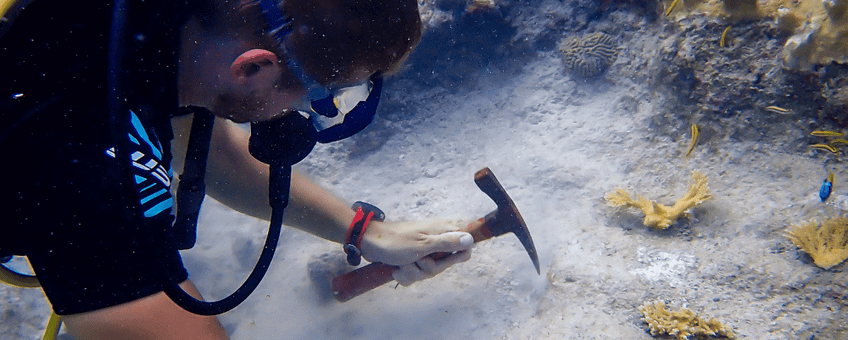
The Reef Renewal Foundation Bonaire's restoration efforts
Dutch Caribbean Nature Alliance (DCNA)Reef Renewal Foundation Bonaire (RRFB) was established with the mission to restore and preserve the coral reefs of Bonaire, a crucial component of the Caribbean's marine ecosystem. Since its inception, RRFB has become a leading organization in coral restoration, pioneering methods that are now being adopted globally. A key aspect of their strategy, based on coral fragmentation and breeding, includes in-situ coral nurseries. RRFB uses different designs tailored to specific coral species and environmental conditions. For instance, coral tree and rope nurseries are used for branching corals, while coral trays and table nurseries are used for species needing flat surface and horizontal stability. This approach, and the decentralized locations around the island, not only maximizes coral growth efficiency and survival, but also ensures that corals are well-acclimatized to their eventual outplanting sites.

Coral fragmentation and outplanting
Coral fragmentation, alongside the coral breeding program, is central to RRFB’s restoration efforts. By fragmenting adult coral colonies, from genetically diverse and resilient broodstock colonies, the foundation harnesses asexual propagation, to significantly boost coral production. This method has proven effective, with RRFB’s nurseries producing over 23,000 corals annually. Once matured, these corals are outplanted using diverse techniques such as cementing, wedging, and tying to bamboo structures, depending on the specific species and site conditions. To date, RRFB has successfully outplanted more than 61,000 corals across 19 sites, covering an area of 13,197 square metres.
Genetic diversity and resilience
Maintaining and enhancing genetic diversity is crucial for the adaptability and resilience of coral populations. RRFB has established a gene bank hosting 12 coral species with 116 genotypes, in addition to the assisted recruits produced via coral breeding, which will serve as broodstock for propagation once reached proper size. The gene bank includes diverse corals that were selected for their resistance to disease and bleaching This diversity is important to ensure restored coral populations can withstand environmental changes and stressors. By adopting a strategy and techniques that aim to safeguard and increase genetic diversity of coral population, the foundation aims to enhance the long-term sustainability of restored reefs.
Collaboration
Outreach and education are integral to RRFB’s mission. The foundation collaborates with 13 local dive operators, conducts educational programs in schools, and provides restoration experience opportunities for visiting groups. Engaging local youth groups, such as the STINAPA Junior Rangers and Jong Bonaire, fosters a community-driven approach to reef conservation. These initiatives aim to build capacity within the local and international community, promoting a shared responsibility for reef restoration. In addition, RRFB actively collaborates with universities and researchers to advance coral restoration science. Offering research opportunities, the foundation increases knowledge on specific topics related to coral propagation and resilience. This collaborative effort is essential for refining restoration techniques and improving the overall effectiveness of restoration projects.
Implications for the Dutch Caribbean
Coral reefs are vital to the Dutch Caribbean’s ecological and economic well-being. They provide critical habitat for marine biodiversity, protect coastlines from erosion, and support local economies through tourism and fishing. However, these reefs face a wide variety of threats including climate change, diseases, pollution, and overfishing. Reef restoration efforts, such as those led by RRFB, are crucial for reversing the decline of coral populations and ensuring the long-term health of these ecosystems. By restoring coral reefs, we safeguard the biodiversity they support, the livelihoods they sustain, and the natural protection they offer against the impacts of climate change.

More information
- Watch Francesca’s presentation on in-situ nursery, coral (micro) fragmentation and outplanting.
- Or watch her presentation on coral reef restoration monitoring and evaluation strategies.
- Stay tuned for more articles in this coral reef restoration series, where we will delve deeper into the topics discussed during the workshop, highlighting the critical work being done to preserve these vital marine ecosystems.
- This workshop is funded by the Ministry of Agriculture, Nature and Food Quality (LNV) and supported by the Dutch Postcode Lottery.
Text: Dutch Caribbean Nature Alliance and Reef Renewal Foundation Bonaire (RRFB)
Photos: Max van Aalst; Reef Renewal Foundation Bonaire (RRFB)
